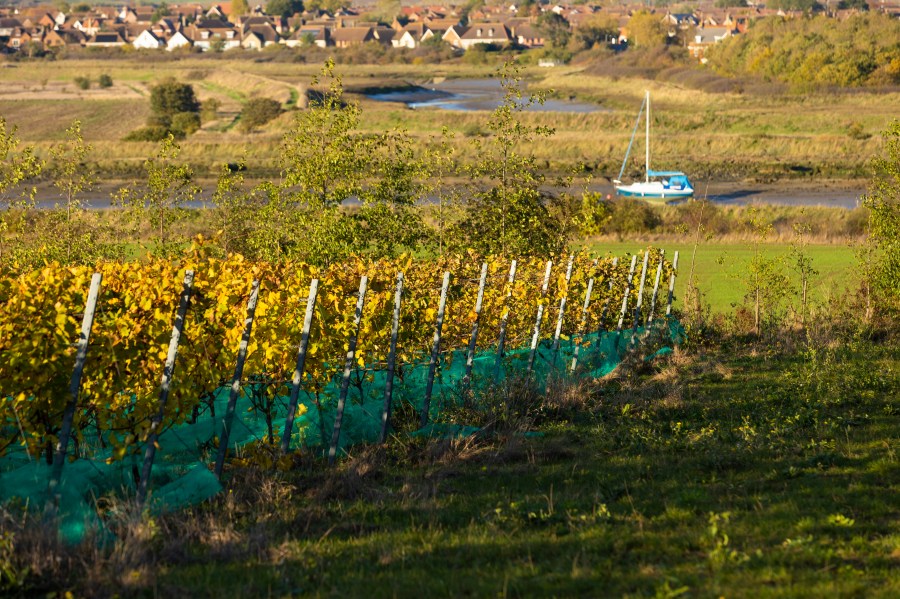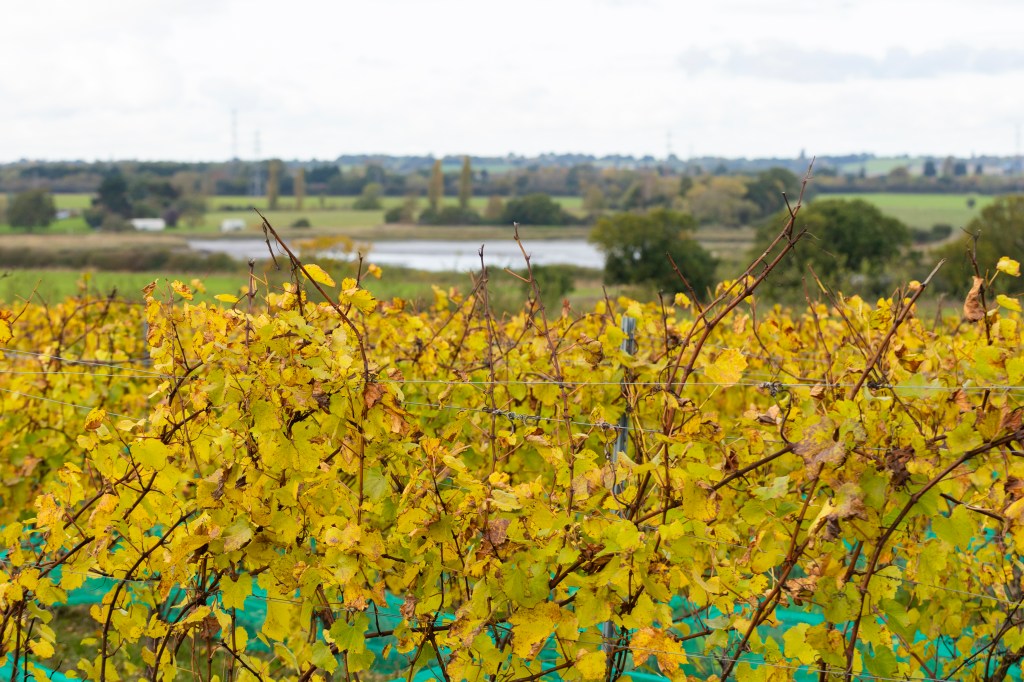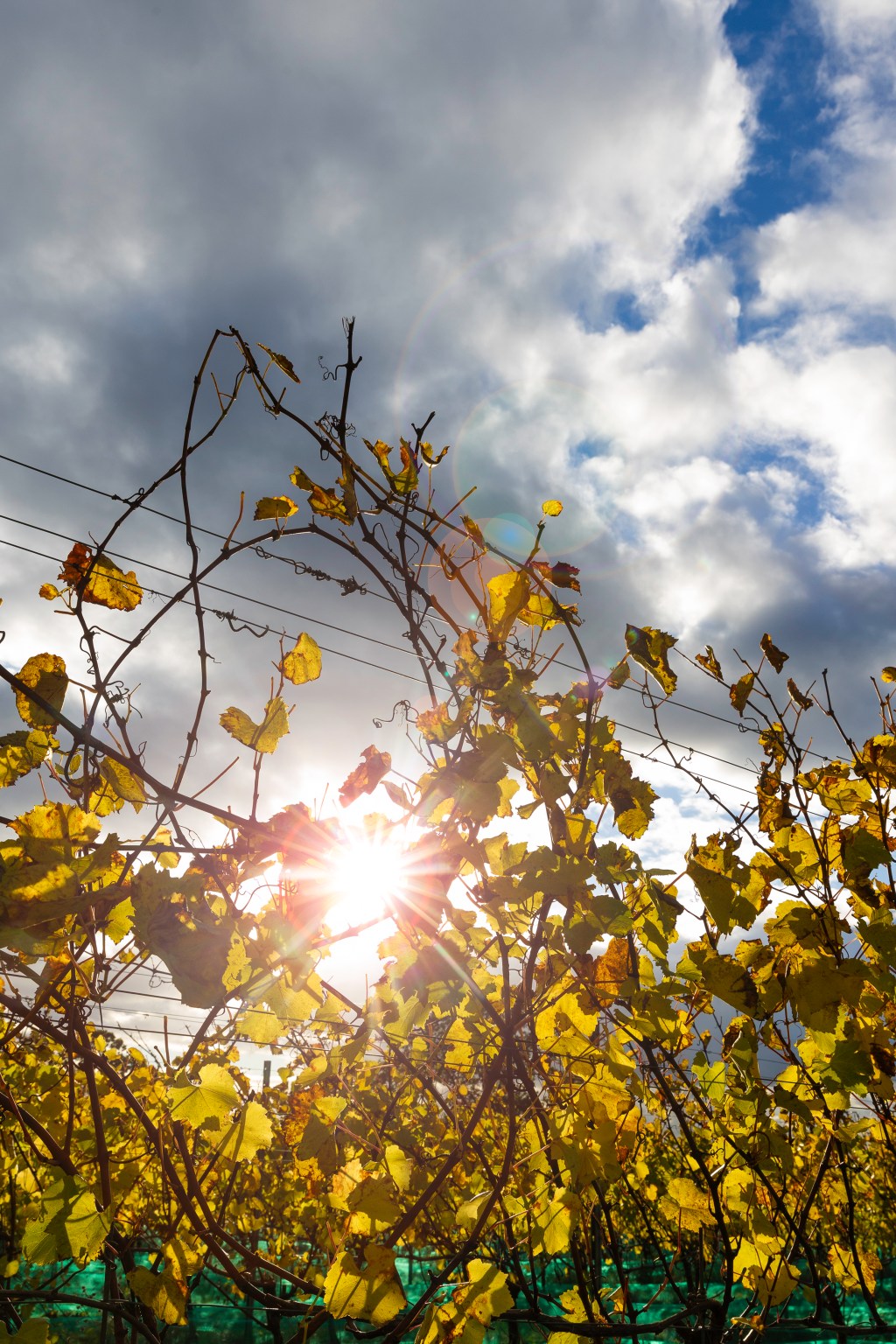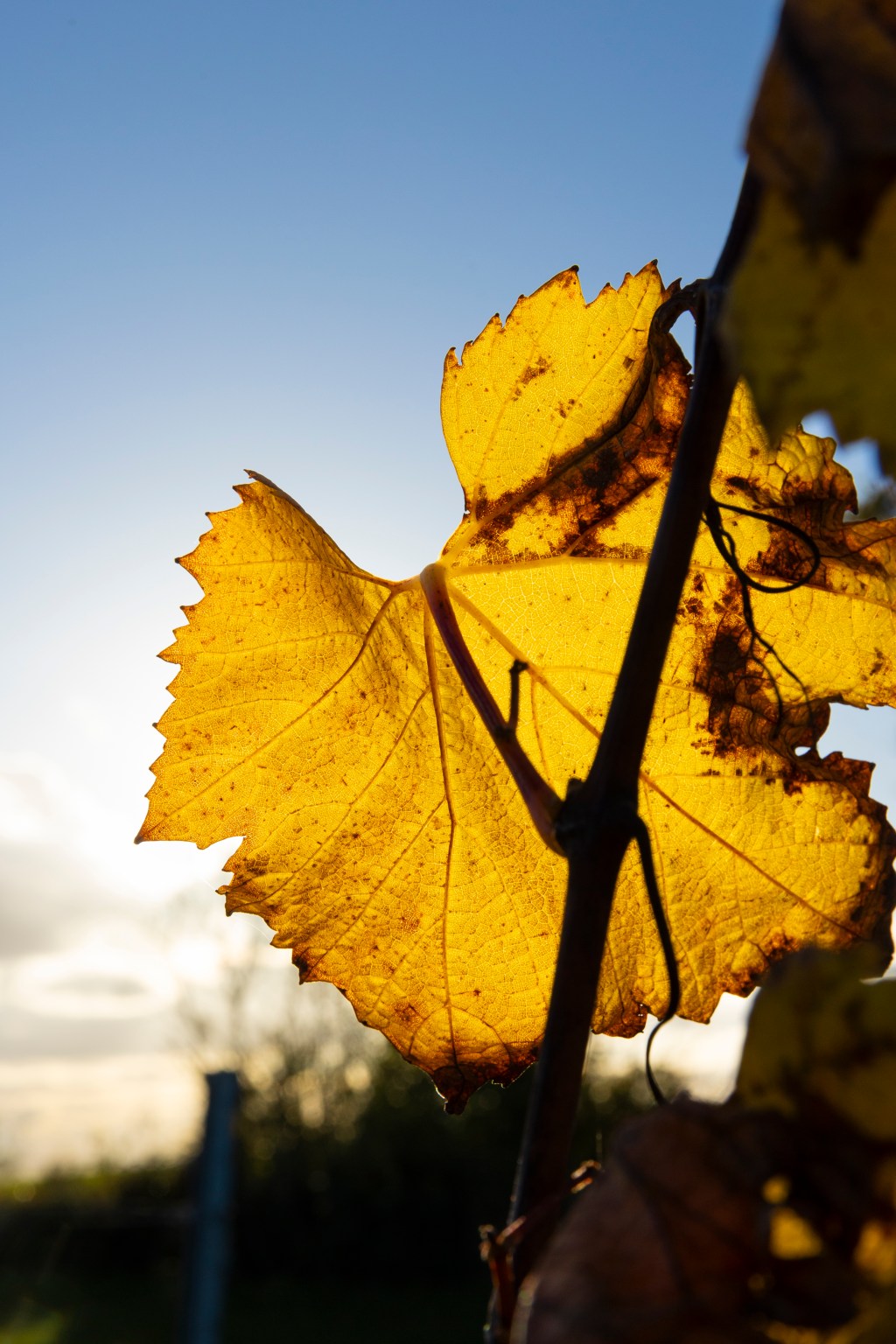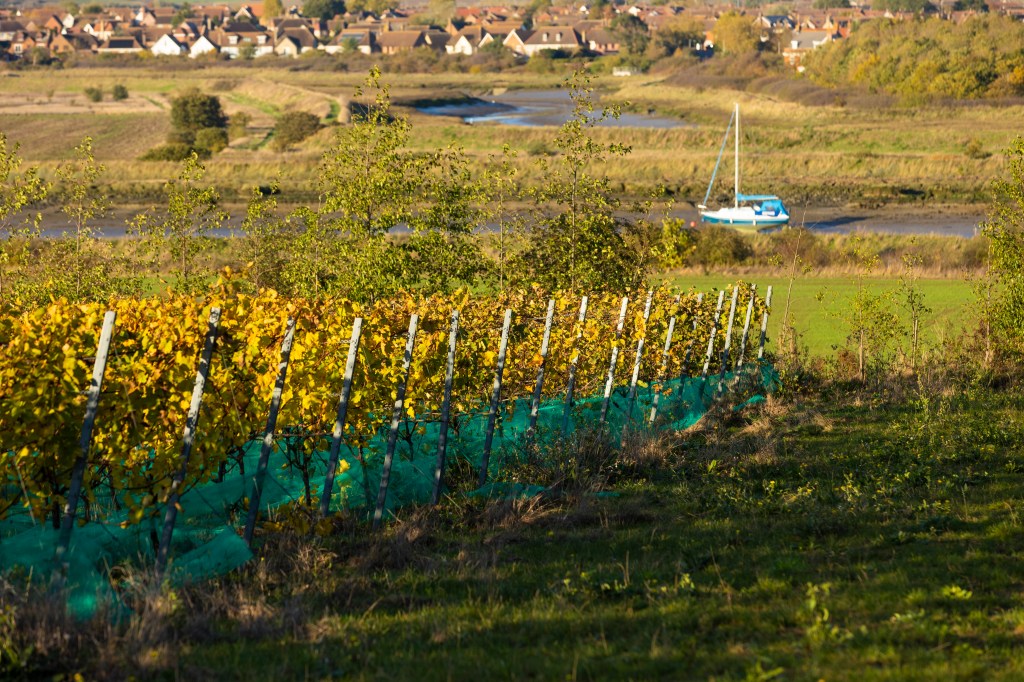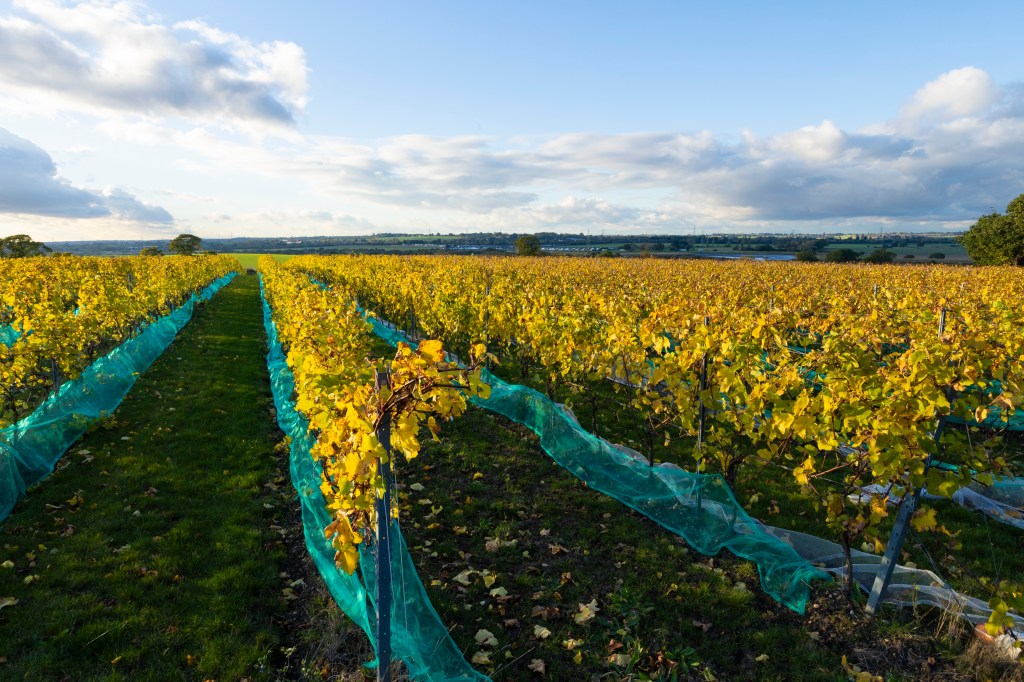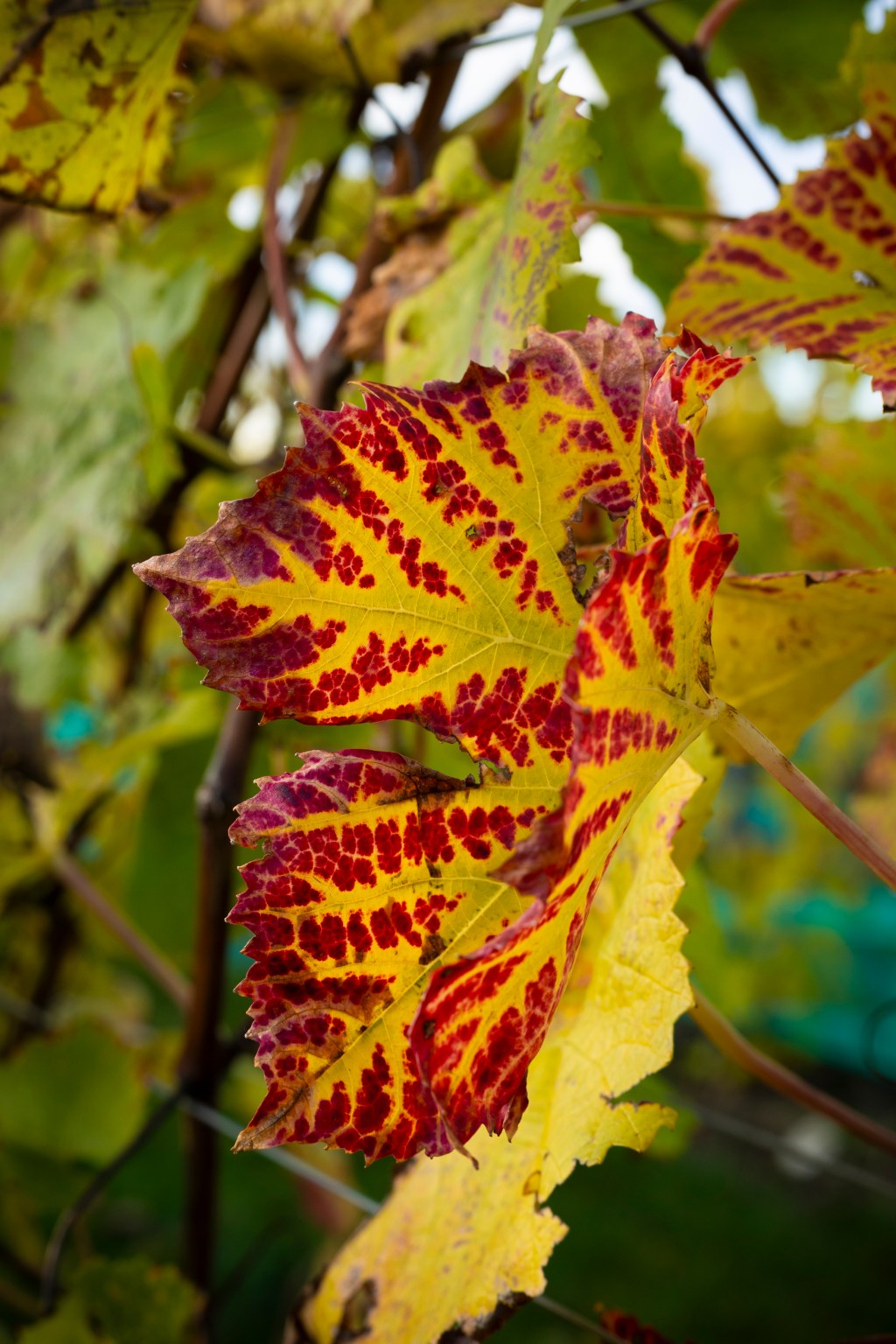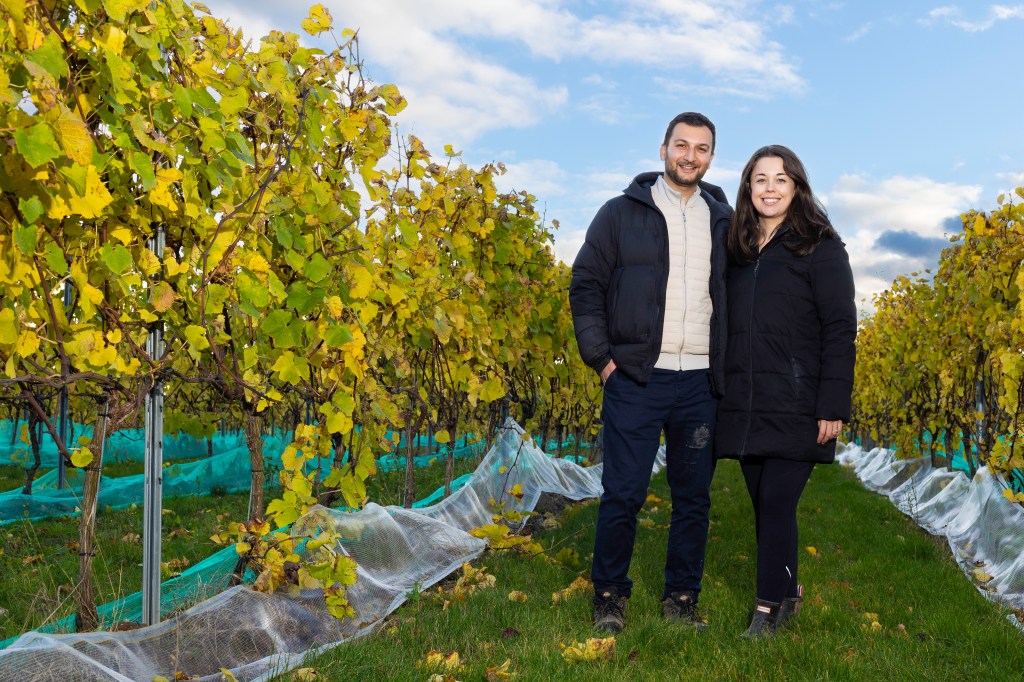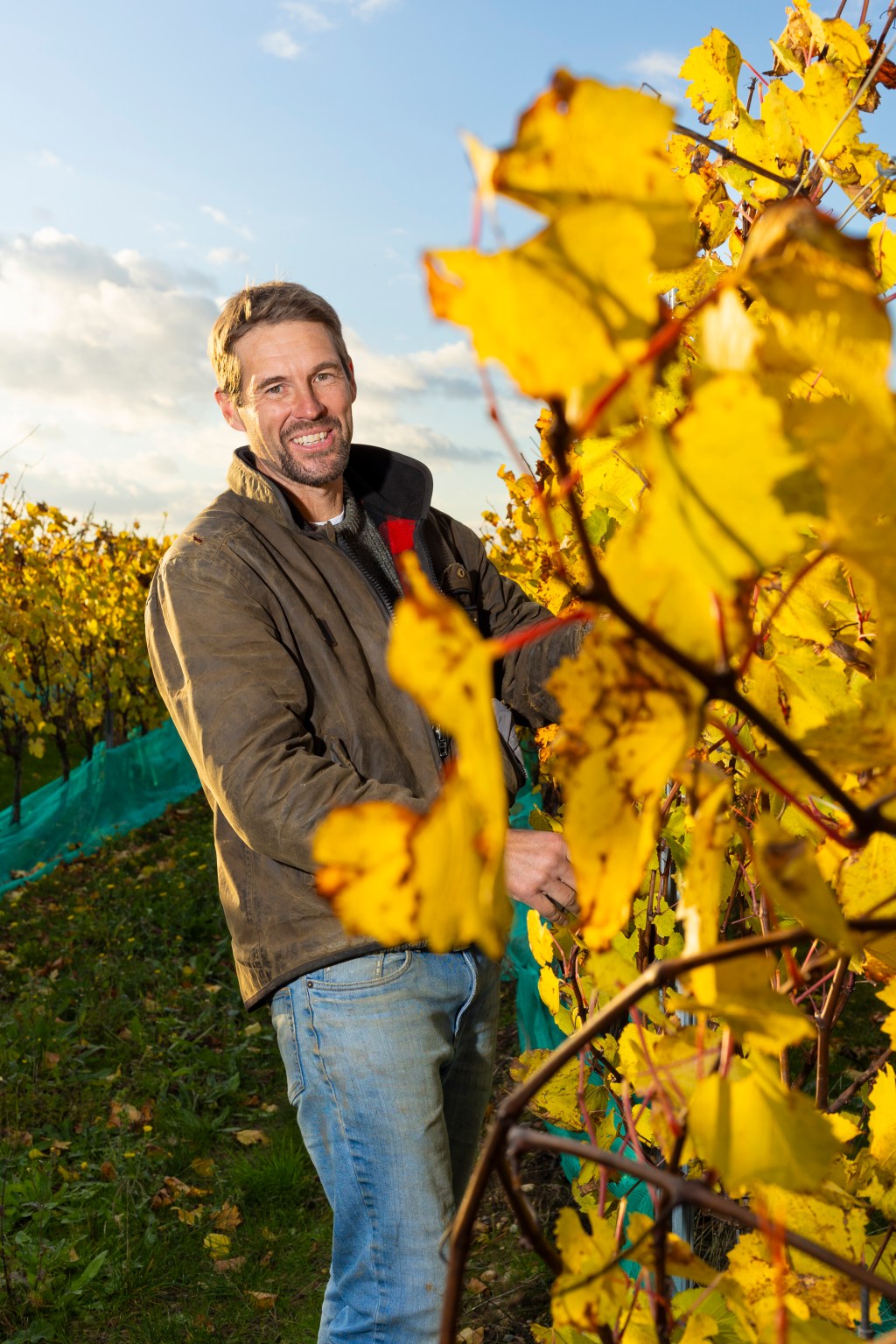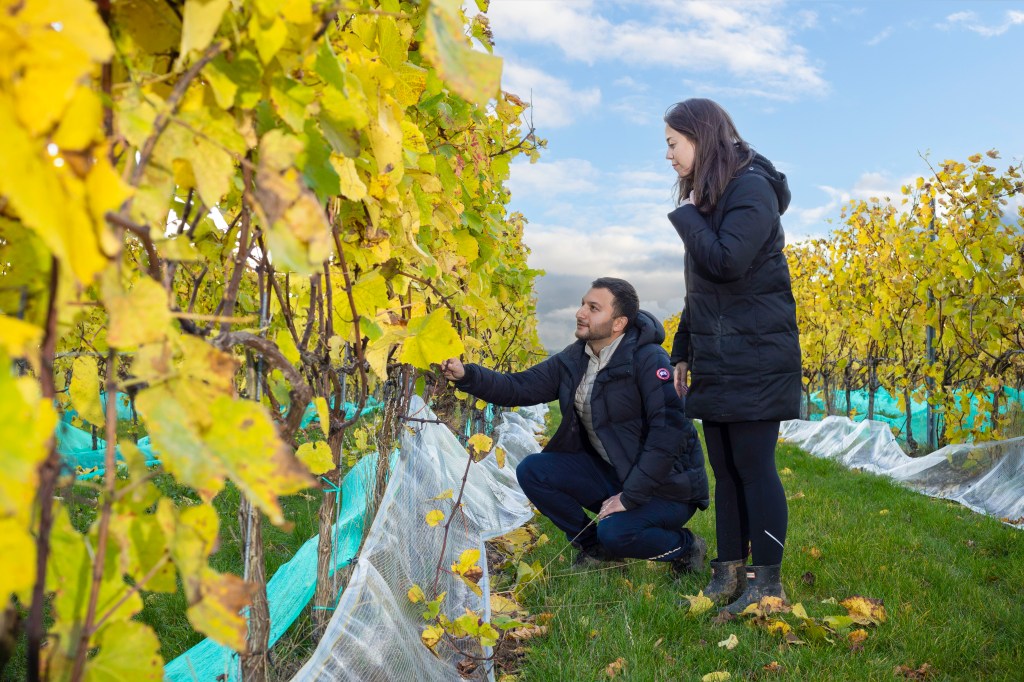The Riverview Crouch Valley vineyard was planted in 2018 by hand, with the site having previously been part of a 1200 acre arable enterprise. The land has been farmed for three generations and had previously been planted with wheat, feed beans and linseed over the years. Now husband and wife team Umut and Katie Yesil have planted the land with Pinot Noir, Chardonnay and Pinot Meunier vines forming the highly successful Riverview Vineyard.
Umut and Katie met on a night out in Shoreditch, London when they were both at University. Whilst studying at university Umut had worked in the hospitality industry. Working in finance at a hotel Umut found himself involved in alcohol purchasing and this sparked his interest in the wine industry. “My first idea was to start up a wine bar,” said Umut and he pointed to the urban winery Vagabond as a model that he thought worked well.
Katie (whose family farmed the land that is now Riverview vineyard) is now the fourth generation of her family to be involved in a branch of agriculture, having originally moved from the Crouch Valley to London in 2012 to study at the London College of Fashion. Initially therefore it may have seemed unlikely that she would end up caring for the land that has been in her family for generations, but Katie explained that her father had also been thinking about the possibility of planting vines on the family land.
The 12,001 vines are planted on 3m wide rows so that tractors can navigate the heavy London Clay soils of the Crouch Valley. The planting density is quite low at 1,226 vines per acre.
I asked Katie who is now 30 years old about her experiences of being a young female entrant to the viticulture industry. Whilst she is quick to sing the praises of the arable farming community she admitted: “There are definitely more women in this industry. Our winemaker is Sarah Massey at Lyme Bay and it is great for us to have a female winemaker in what could be another male dominated industry.”
Whilst the difference between the Crouch Valley and the couples previous home in Shoreditch is profound it is remarkable how their previous city life has influenced, shaped and improved their vineyard business. Umut and Katie had previously run a PR business in London working with top designer brands. This experience has meant that they are keen to establish a strong identity for their brand.
The focus at Riverview is on premium quality single varietal wines. Originally the plan was to make Sparkling wine but the quality that is possible on this site allowed Katie and Umut to look at producing still wines. “The business plan changed overnight,” said Umut. Even though there are plans to plant an additional 11 acres of vines the product range will keep to these values.
“We did not take a gamble but surrounded ourselves with all the right people,” said Katie. For vineyard management advice Katie and Umut turned to Duncan McNeill.
Duncan is well known to many in the Crouch Valley. He manages 23 of the vineyards in the region alongside his own viticultural enterprise that is now planted on land adjacent to Riverview vineyard.
“There has been an element of luck in the quality of grapes that we have got from the site but we have got a good product and the hard part is now on us to sell it,” said Umut. “You have seen the opportunity, you could have been oblivious to it and let it sail by,” interjected Duncan keen to make sure the couple do not sell themselves short.
Instead of selling the grapes on a contract basis Umut and Katie have taken the brave decision to build a brand. “From day one it was our intention to build a brand,” said Katie. “From our time in PR we used to manage other people’s products and we used to say how it would be amazing to do this for ourselves,” Umut added.
The vineyard first launched a Chardonnay from the 2020 vintage at the 2022 WineGB trade tasting. The 2021 vintage has only just been released and is already making waves. A Pinot Noir has been added to the range and Matthew Jukes review of their 2021 Chardonnay can be found on page 21. The first sparkling wine, a traditional method Pinot Meunier is due to be released next year and will be eagerly anticipated. “Pinot Meunier is an interesting grape that is often overlooked,” said Katie. “From the 2023 harvest we are making a still rosé from the Pinot Meunier,” she added.
The city experience of Umut and Katie has benefitted the business in other ways too. The day we met, Umut had returned from a meeting with an establishment in Mayfair that is considering offering Riverview wines to their exclusive clientele and Katie points out that the wine is currently being offered as an off menu special at a Michelin guide Restaurant. “Umut always visits potential customers personally,” Katie said.
As the vineyard manager and in addition to having a wealth of experience within the Crouch Valley in particular Duncan explained a little about the site at Riverview. The vineyard is planted on heavy London Clay. In the recent wet weather the soil structure is clearly evident as we walk through the wet areas at the bottom of the vineyard. Duncan explained that the soil is wetter than he has ever experienced and for the first time ever he tried to make a turn in a tractor and got no traction. Duncan is quick to point out however, that the London Clay is a key part of the terroir. “The London Clay is slow to relinquish moisture so if you get a wet harvest it restricts the flow of water into the berries and therefore there is no skin splitting, so there is no need to worry about fungal bunch rot and this makes prolonged hanging time possible. We are still in a marginal climate so we do need as much of the growing season as we can bring out of it. The prolonged hanging time is not necessarily about getting super high sugars it is about getting proper phenolic ripeness.”
“The wide rows of the vineyard have the additional benefit of allowing the evening sun to reach the fruit zone for longer during the summer months helping to reduce the acidity in the Chardonnay, but if I am being very honest that was an unforeseen benefit,” continued Duncan candidly.
“Over the last ten or twelve years we have all been aware that the GDD accumulation in the Crouch Valley has been higher than it has been elsewhere in England. There may be hotter daytime temperatures elsewhere but to drive the vine through its key phenological growth stages we need to be accumulating those growing degree days.
The ability to delay your harvest is key; as a region that specialises in premium still wine production what we need out of a growing season will be different from Sparkling producers in Sussex and Hampshire,” Duncan added.
Since Riverview is making premium single varietal wines it is interesting to note some of the specific details of the clone selection. Duncan said: “For the Chardonnay we planted three clones and there are four clones of the pinot Noir. I always plant a number of clones because it provides a bit of complexity in the wine and it also spreads the risk if for example one clone suffers from poor flowering in a particular year. We have Chardonnay clone 548 and clone 76 which are well established French clones for still wine production but we have also got an aromatic clone which lifts a Chardonnay.” Umut pointed out that this aromatic quality in the Chardonnay is something that has been heavily commented on since the release.
Speaking about the Pinot Noir clone selection Duncan explained that the clones are F105s, FR1801, GM1 and WEM171. “The reason for the F105s and the FR1801 is that they really are the proven staple clones of Pinot still wine production in the Crouch Valley. The skins are really robust; with the FR1801 you get a really good colour profile and the F105s has got a real rich fruit intensity, and that combination of the two is absolutely superb.”
The clones are all monitored separately for ripeness and harvested into separate bins to give the winemakers at Lyme Bay as many options as possible.
The vines are grown on a single Guyot system as Umut and Katie want to produce premium wines. Duncan explained that the single Guyot is used to prevent overcropping and provide better ventilation. Duncan is extremely proud as he explained: “We have grown grapes to a potential alcohol of 12.5%-13% with extended hang time without the use of Botrytis fungicides, for me that is something that we will continue to do.”
There are some trials of cordon pruning happening at the vineyard. When the vineyard is young and already making a name as a premium brand it is fantastic to hear that Duncan, Umut and Katie are looking for ways to further refine the fruit that they produce. Duncan explained the reason for the trial: “I like the way vines pruned on a cordon grow vertically, it gives you more upright cane growth so you get better sunlight interception over a longer period of time because you build up more permanent wood on the vine. The idea is that you get more sap flow and more intensity in the fruit. There will be slightly lower yields which is not a problem here. It is good not to get stuck in a rut,” explained Duncan.
The harvest takes place late in the Crouch Valley with the fruit being given as much hang time as possible. As the month of November entered its second week, Duncan explained that harvest was still taking place in certain vineyards in the area. This prompted a discussion about SWD. Duncan explained that the problem of SWD was really localised and that “the native Drosophila melanogaster causing sour rot was as much of a problem in the area as the invasive species Drosophila Suzukii. “Here (at Riverview) there have not been any puncture wounds of the berries but one village in particular in the Crouch Valley has sadly had a problem with sour rot in the Pinot Noir,” said Duncan.
At Riverview Katie and Umut have decided not to use sprays choosing instead to produce the grapes in an organic manner incorporating biodynamic principles as well. Katie admitted that this decision not to spray in the vineyard is not something that her dad approves of. “Dad would probably like to come round and spray all the weeds off,” she said with a smile and Umut explained that Katie’s parents have been able to strike that difficult and often elusive balance between offering their advice but allowing the couple to make their own decisions which shows just how much love has gone into building this venture. There are not many times that talking about weeds has become poetical but Umut said: “We have found that there is beauty in the land looking more natural. If it is all pristine and clean there is almost something artificial about that. This conversation highlights just how far Umut has travelled from his city roots he admitted: “When I first started out I was a city boy. I had a bit of an allergy to mud but now I do all the tractor work in the vineyard and from the 2023 season have been full time working in the vineyard and the commercial side of the business.”
Speaking about yields Duncan explained that they actively managed the yield downwards. “We do a bunch reduction at bunch closure, any earlier and you risk the berries enlarging too much, so we wait until just around pre-bunch closure to reduce the number of bunches down. At veraison we take off the shoulder bunches and normally that is enough but this year we realised that the bunch weights were 65% heavier than average so half way through veraison we went through again and made more reductions.
“When you have a brand like Katie and Umut have yield is not the driver, quality is and quality is achieved by finding the right balance of yield and time on the vine for the berries to mature,” said Duncan. It is clear that he really knows Riverview Vineyard from the soil and the climate through to the specific clones but beyond that he also really knows what Katie and Umut want to achieve and what is important to them. It is not surprising therefore that this working relationship has produced wines that have already got people talking.
Birds have been a particular issue in the vineyard. “The entire bird population of Essex had been here,” said Katie laughing. The whole vineyard is netted every year. Duncan supplies the vineyard with 20 workers who spend a whole day putting the nets up however Umut has a video showing a significant number of Starlings inside the nets picking at the ripe fruit which shows just how determined these Essex Starlings can be.
Frost mitigation has been crucial for Duncan. On his adjacent site he has a Fog Dragon with the rows highlighted that make up the circuit that he drives pulling what he describes as a mobile furnace. “The first night I used it I was driving round the vineyard in circles thinking what am I going to do if this does not work.” Using Trac365 Duncan is sent an alarm as soon as the temperature drops to 1.5°C. He admits that he does not always want to get out of bed in the small hours of the night to drive the fog dragon around but on the 2 April 2023 the temperature got down to negative 3.3°C in certain parts of Duncan’s site. Duncan explained that the Fog Dragon requires that the circuit is completed every 20 minutes. “If you have a frost in the early part of the season you can be out from 23.00 until 07.30 in the morning which is a long shift so you have to break it up.” Umut added that he has helped to keep the Fog Dragon supplied with wood and that Katie’s dad has taken a turn driving the Fog Dragon. Katie admitted that it has been a while since she drove a tractor but she has woken up in the early hours when Umut has headed out to help with the Fog Dragon.
Speaking about Frost damage Duncan said: “What we are seeing is that frost damage is occurring not at three or four leaves exposed but it is at woolly bud and people often don’t even know there has been a frost. If temperatures go lower than -3°C when the vines have got woolly bud and the cane is touching the wire, the wire gets colder than air and it conducts the cold into the bud. I think that is happening more frequently because the vines are coming out of dormancy earlier than they were 15 years ago. I came here in early 2006 back then if you had a frost in early April everything was still in its dormancy.”
The boundary of the vineyard is marked on one side by private homes. These homes have a birds eye view of the activities in the vineyard. The obvious question was “what do the neighbours think?” The answer was quite surprising. “The neighbours love the vineyard,” said Umut. This attitude of neighbours embracing the agricultural business that is on their doorstep is refreshing; as so many in the countryside find that their agricultural enterprises that are so vital to the upkeep of the land and the rural economy are barely tolerated. Not so at Riverview however, this may have something to do with a slightly cheeky story that Duncan related: “When I was marking out the vineyard prior to planting the vines some of the local residents came and asked me what I was doing? I could not resist telling them that I was marking out the car park for a new Tesco store,” joked Duncan. “When I told them the truth, however, they were really interested that the land was going to be a vineyard,” he added. The vines on the other hand provide a beautiful ever changing foreground to the distant views across the Crouch valley for those houses on the boundary and both Umut and Katie point out how much the neighbours engage with the vineyard. “They are really invested and ask when harvest is going to happen,” Umut added.
Katie and Umut have plenty of plans for the future including possible further plantings and at some point a visitor centre located on an adjacent site, so clearly there is much to come from this exciting vineyard. The final thought about the vineyard is summed up by a comment from Umut “I have just fallen in love with everything,” he said.
- Umut and Katie
- Duncan McNeill

